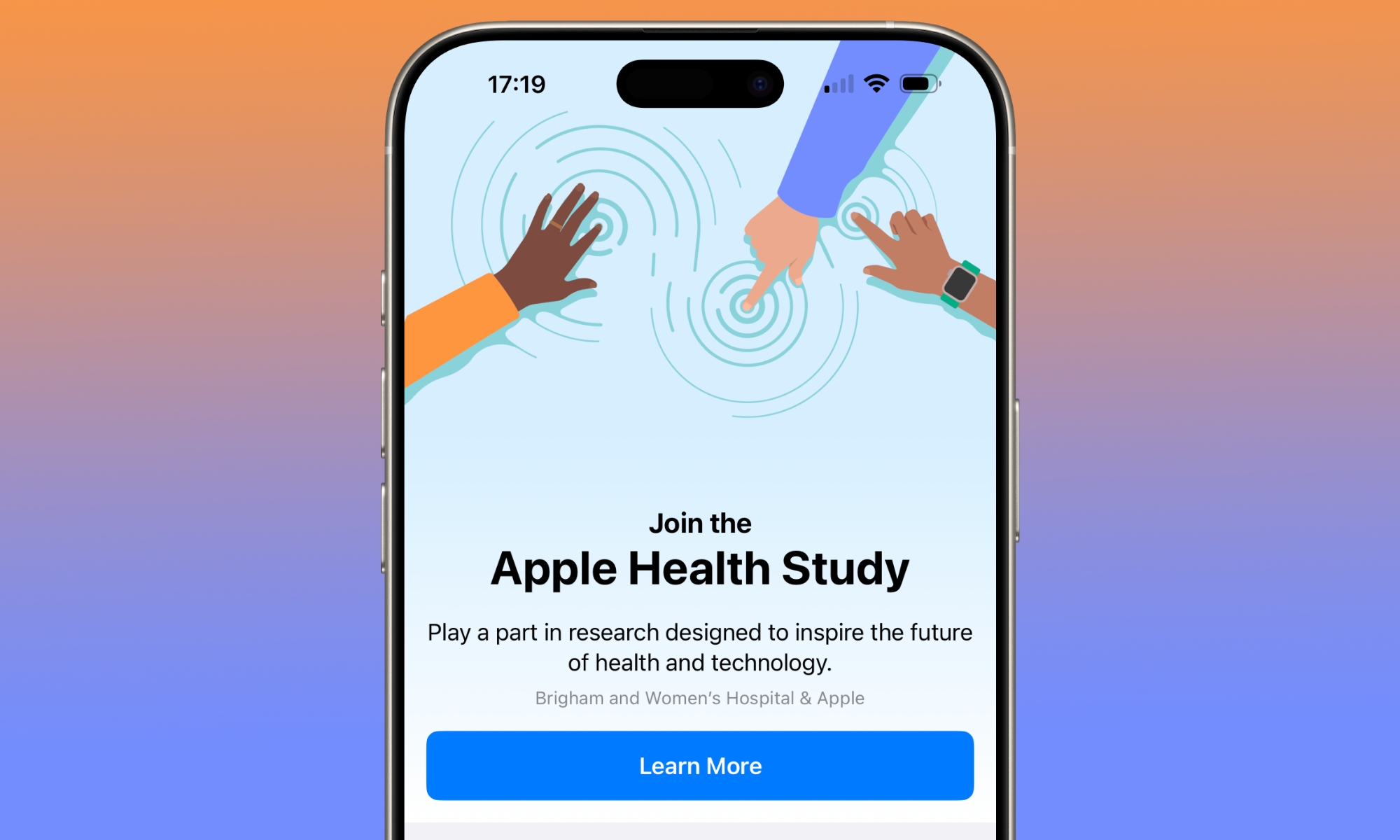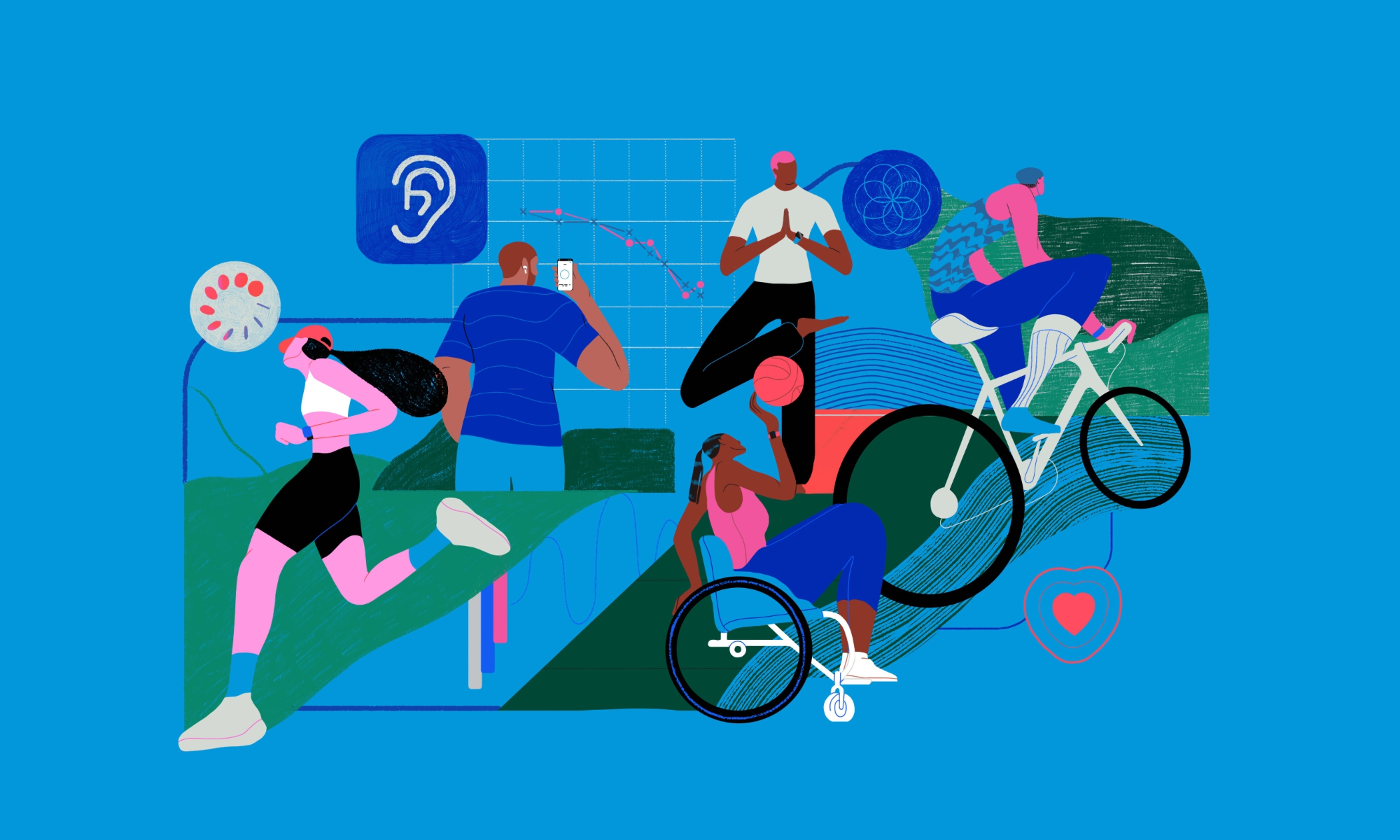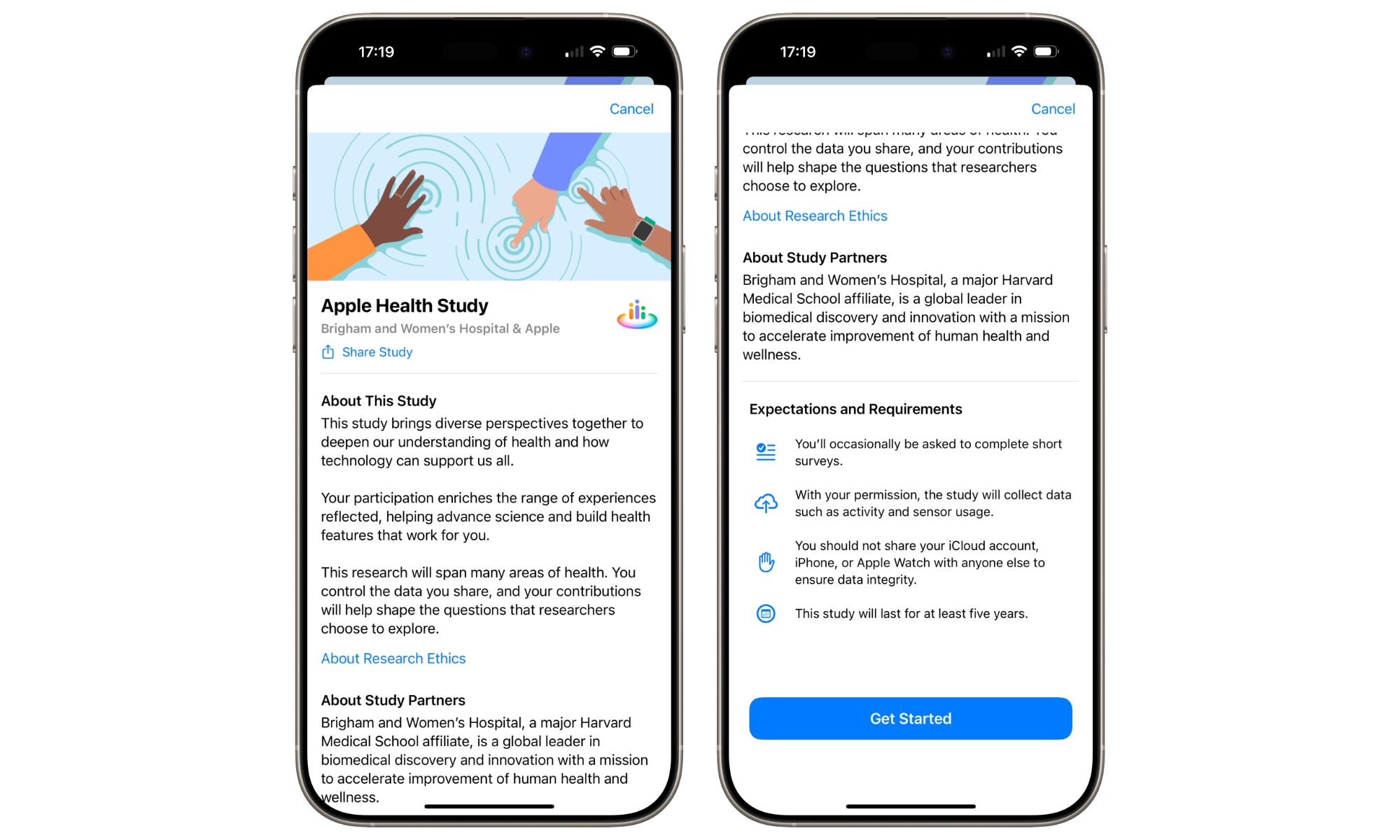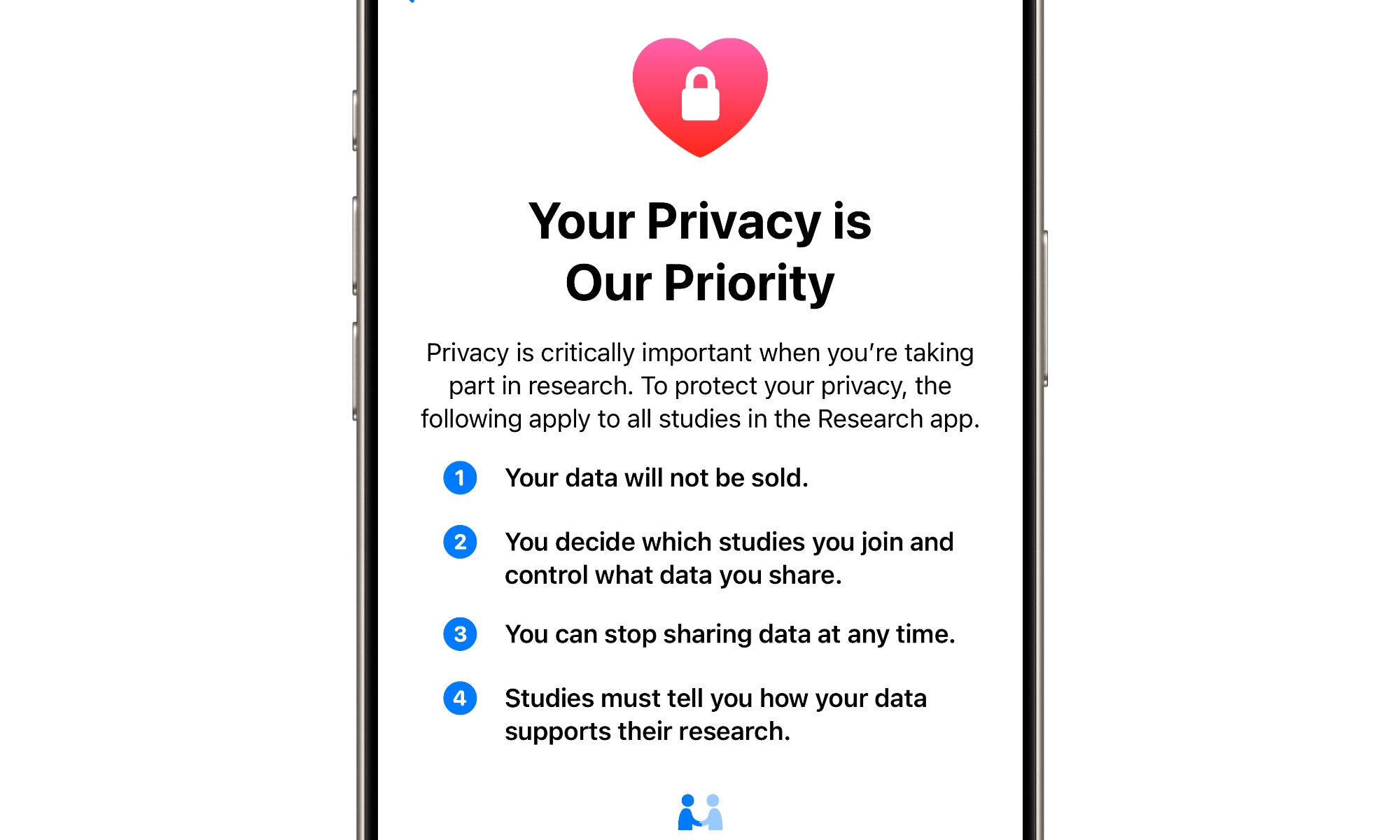Apple Leaves No Stone Unturned in Its Latest Comprehensive Health Study

Toggle Dark Mode
Apple’s health initiatives go beyond just providing tools to help you manage and monitor your own health. Over the years, the company has launched a number of health studies covering everything from heart health to hearing.
These focused studies have borne a lot of fruit, providing new information to scientific and medical researchers on menstrual health, tinnitus, and more. However, these previous studies have all been focused on specific areas of physical and mental health.
Today, Apple is broadening its scope with the Apple Health Study, a definitive holistic study that looks at how technology can play a role in improving all aspects of a person’s health, including “physical health, mental health, and overall wellbeing.”
The study, available in Apple’s Research app (which has just received a major version 6.0 update to include it), is being conducted in collaboration with Brigham and Women’s Hospital, a leading research hospital closely affiliated with Harvard Medical School.
We’ve only just begun to scratch the surface of how technology can improve our understanding of human health. We are excited to be part of the Apple Health Study, as it will continue to explore connections across different areas of health using technology that so many people carry with them every day.
Calum MacRae, M.D., Ph.D., cardiologist and Professor of Medicine at Harvard Medical School
In addition to tying together the iPhone, Apple Watch, and AirPods to see how these devices advance and improve health, the study will also “explore relationships between various areas of health,” Apple says. This could include things like considering how mental health can affect heart rate or how sleep (or lack thereof) influences exercise.
What makes Apple’s research studies so valuable is how easy it is to recruit participants, as the entire process is handled through the Research app. For medical studies like these to be as accurate as possible, large sample groups are needed, and the studies often need to occur over several years to capture sufficient data for analysis.
Research and validation are part of the foundation of all of our work in health, supporting the innovative features we bring to our users across devices. The valuable insights we’ve gained since launching the Research app have allowed us to bring innovative new tools to our users — including the Vitals app on Apple Watch and Walking Steadiness on iPhone — and surface new insights in areas of health that have long been undervalued, like menstrual and hearing health. We’re thrilled to bring forward the Apple Health Study, which will only accelerate our understanding of health and technology across the human body, both physically and mentally.”
Sumbul Desai, M.D., Apple’s vice president of Health
This new comprehensive Apple Health Study builds on the data and findings from Apple’s previous Women’s Health Study, Hearing Study, and Heart and Movement Study, which boasted more than 350,000 participants in the US and have been ongoing since 2019.
From that data, Apple and researchers at Brigham and Women’s Hospital hope to gain a greater understanding of how data from Apple devices and other health monitoring technologies can help “predict, detect, monitor, and manage changes in participants’ health.” The study will cover a vast range of areas, including activity, aging, cardiovascular health, circulatory health, cognition, hearing, menstrual health, mental health, metabolic health, mobility, neurologic health, respiratory health, sleep, and more.
Eligible participants can sign up for the new study in the Research app. It’s limited to Apple users in the United States, and there are minimum age requirements. Users must also complete an informed consent process, but as with all of Apple’s studies, privacy is tantamount.
The study will run for five years, but participants can always choose which data they want to share with researchers and can stop sharing or exit the study entirely at any time. Apple also has no access to identifying information that participants provide through the Research app, which goes securely and privately to the medical researchers, where it’s governed by medical ethics and privacy laws.










